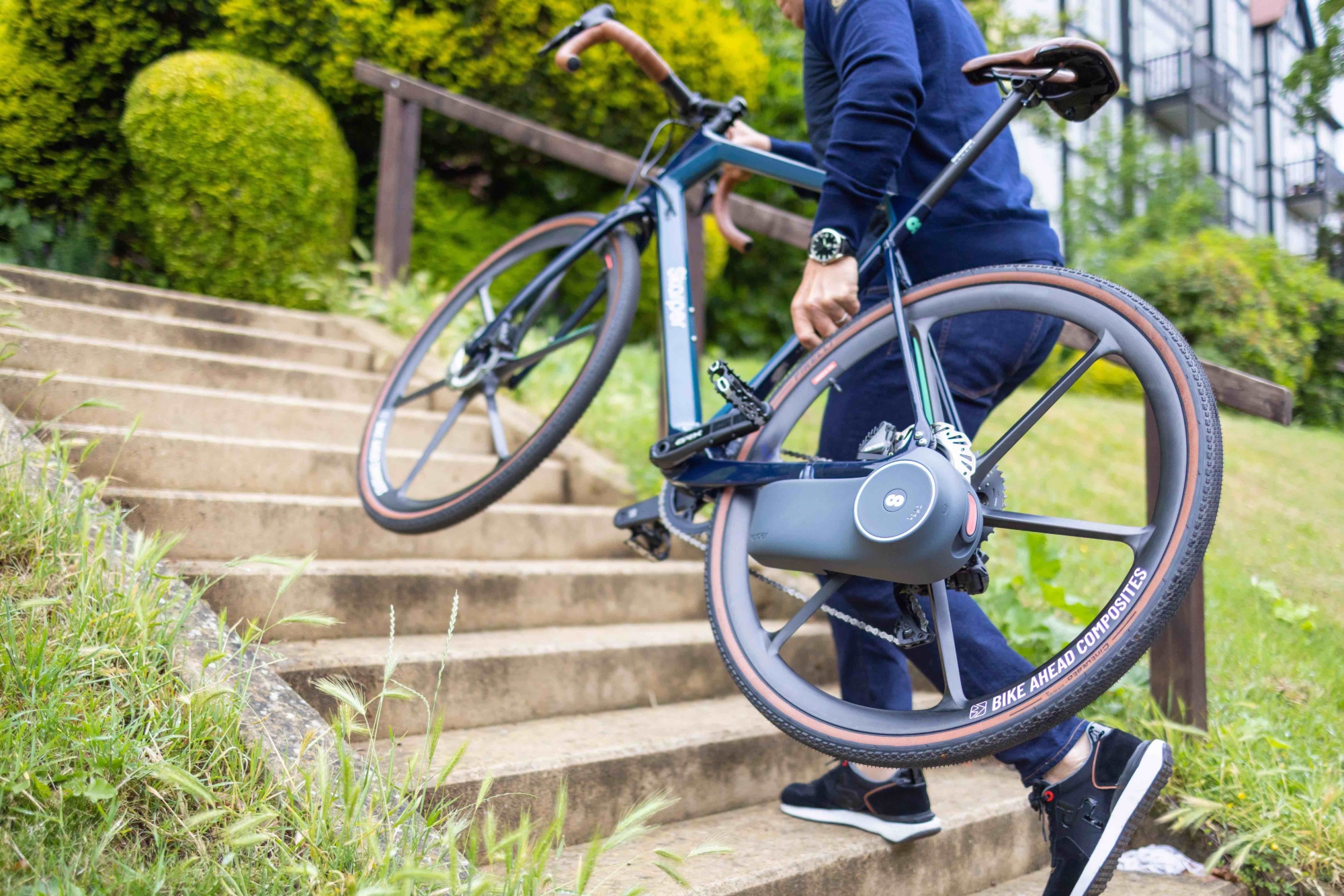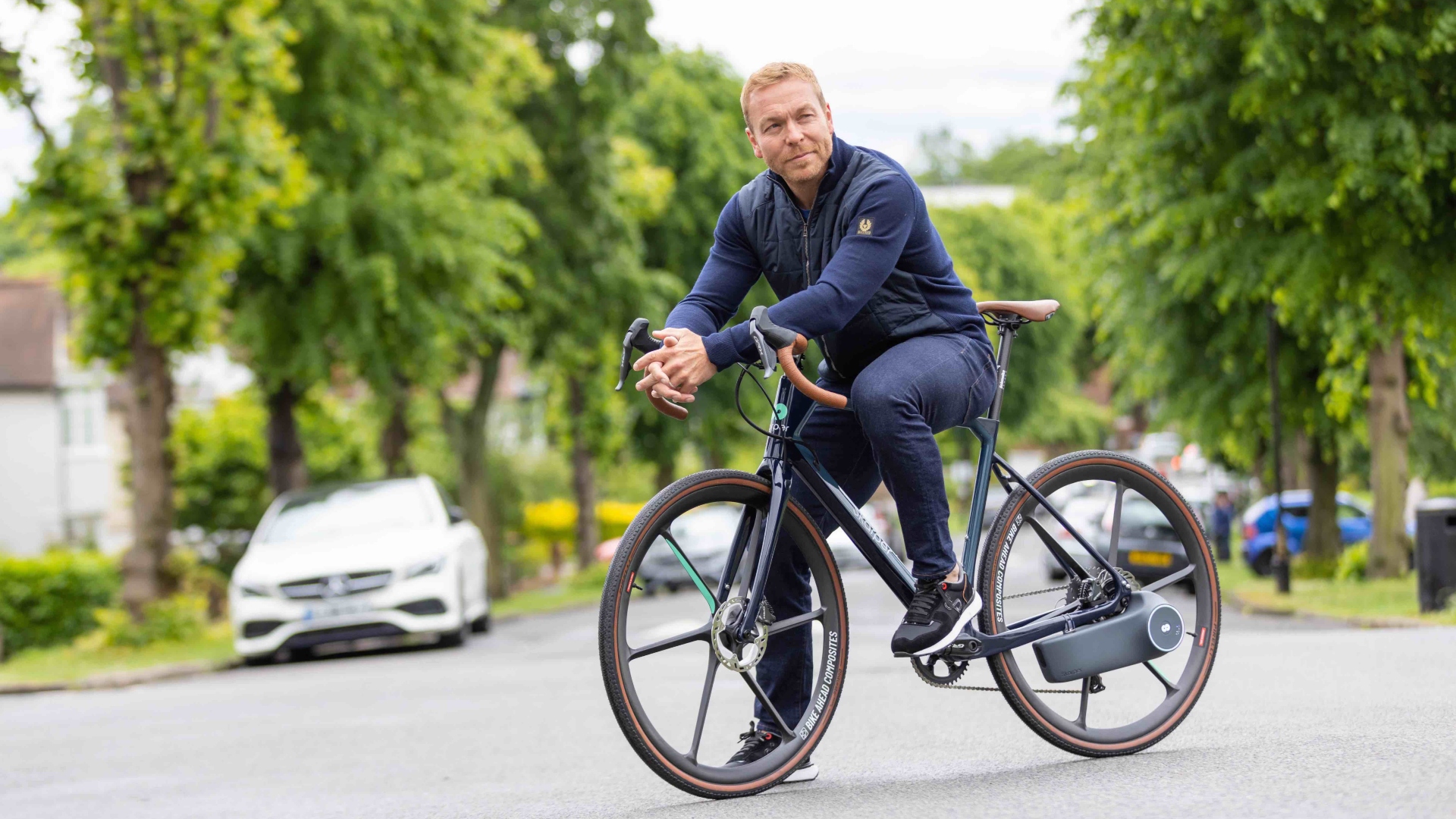
Skarper, creators of DiskDrive, a click-on, click off e-bike conversion kit system, has secured an additional £4 million in funding, which it says will support “the acceleration and scaling of Skarper’s route to market.”
The London-based tech start-up, which lists Olympic champion Sir Chris Hoy as a shareholder, has now received £8 million in funding for its first-of-its kind, patent-protected technology that turns any disc-brake equipped bicycle into an e-bike without the need for any modifications to the frame or wheels.
“I truly believe this is going to make a significant impact on the industry; people will have the freedom and flexibility to choose whenever they want electric assistance which opens up cycling to so many more people – something I’m extremely passionate about,” Hoy said.
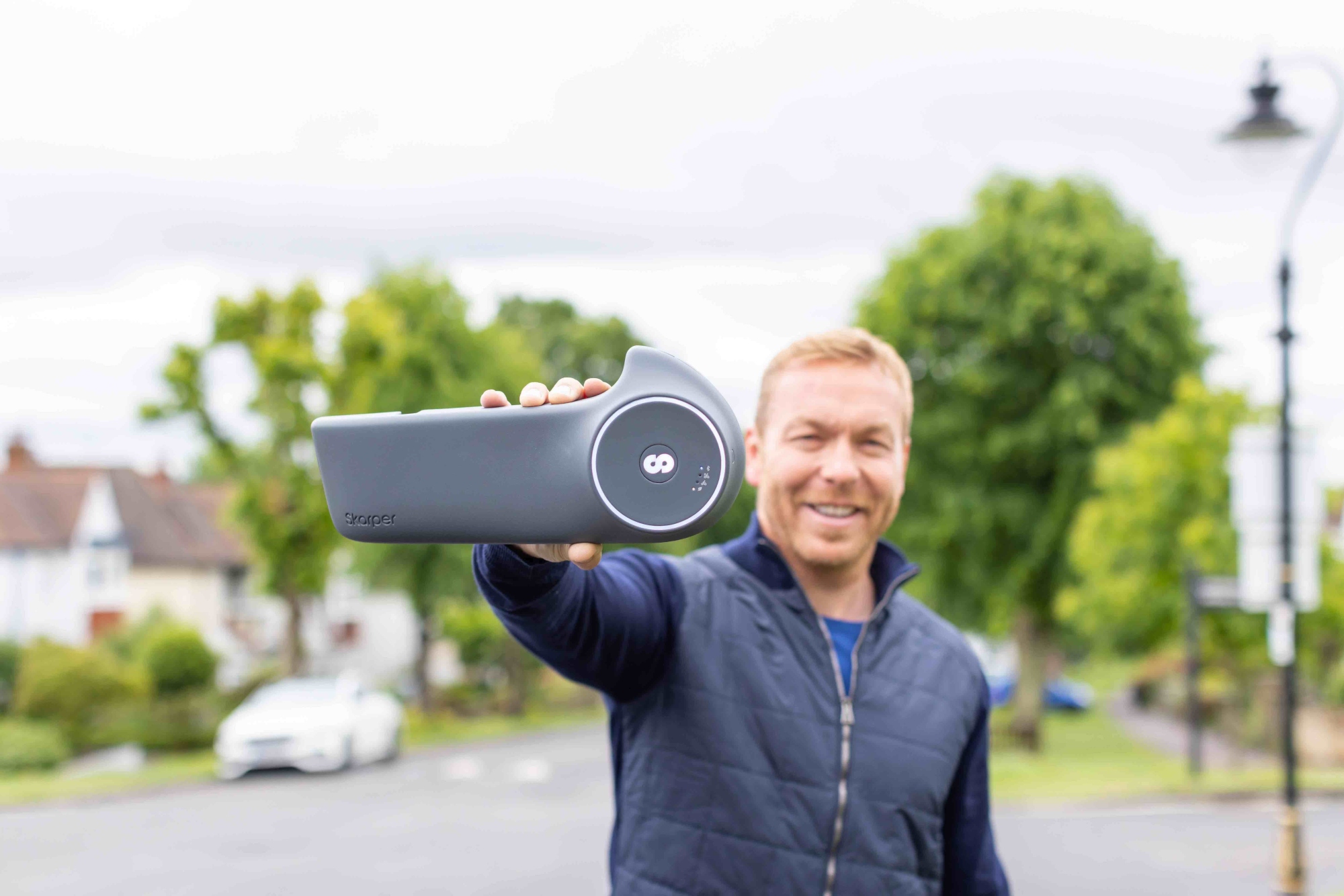
What is Skarper?
The Skarper system comprises two components, the DiskDrive and the Drive Unit. The 300g DiskDrive replaces the standard disc rotor, theoretically making the system compatible with a disc-brake bike, whether it be a road bike, a hybrid or mountain bike. Inside the DiskDrive is what Skarper calls a “full gearbox”.
One of the apparent selling points is that when it’s not being electronically driven (more on that shortly) it behaves just like a regular disc, acting at the braking surface. The advantages here seem clear. If the video on the Skarper's YouTube channel is accurate, the system should allow you to switch from bike to e-bike in a pretty straightforward fashion, eliminating the need for a dedicated electric bike.
It would also seem to be attractive to those who enjoy the bike they have but would like the option for electric assistance from time to time. Cycle into work under your own steam; return home after a hard day’s work with a little help.
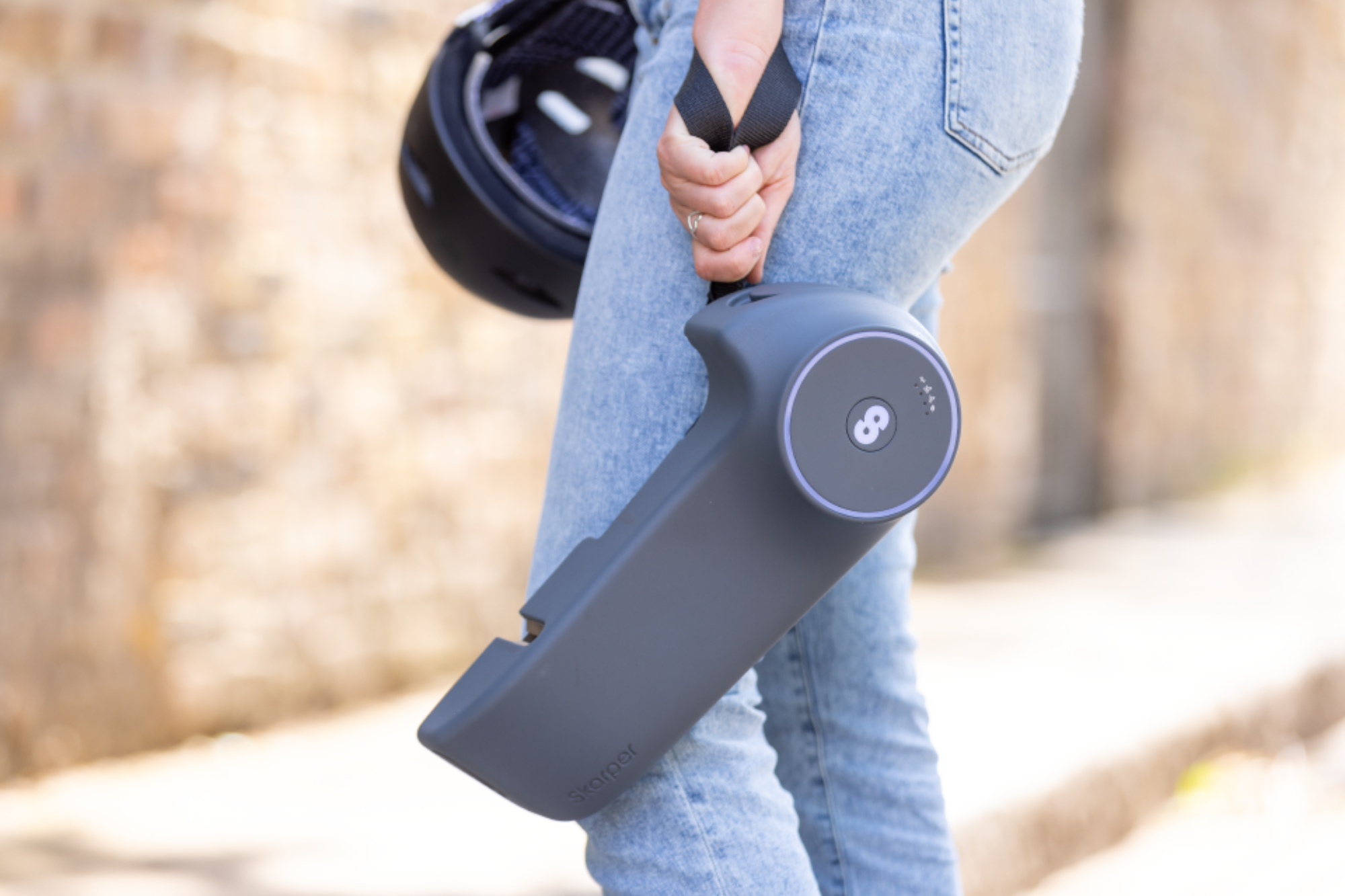
To engage the DiskDrive you’ll need the Drive Unit. Skarper says this uses both high capacity Lithium cells and a high torque brushless motor: in essence an “all-in-one motor and battery drive unit.
The accompanying video makes it look wondrously simple, with the unit effortlessly ‘clicking’ onto the DiskDrive and securing to the bike frame’s chainstay. It appears to click off just as easily, with the lifting of a lever at the rear, and is even supplied with a carry handle so you can take it with you. The claimed weight is 3.3kg, which would seem to make this concept entirely possible. It also means that when added to a regular bike of, say, 10kg it still would still be lighter than a good many dedicated e-bikes.
The application of power is delivered by a 250w motor that provides 50Nm of torque. Skarper says it’s also developed DynamicClimb, a “bespoke algorithm using a suite of wireless sensors, that measures the rider’s output, road incline and monitors drive unit parameters thousands of times a second.”
As for battery life, Skarper says the 202Wh unit will give you up to 60km on a full charge. Charging from empty to full is said to take 2.5 hours. Don’t have time for a full charge? Skarper is confident that you’ll still be 15-20 km after just 30 mins of charging. Top speed is 32km/h or 25km/h in restricted countries, such as the UK.
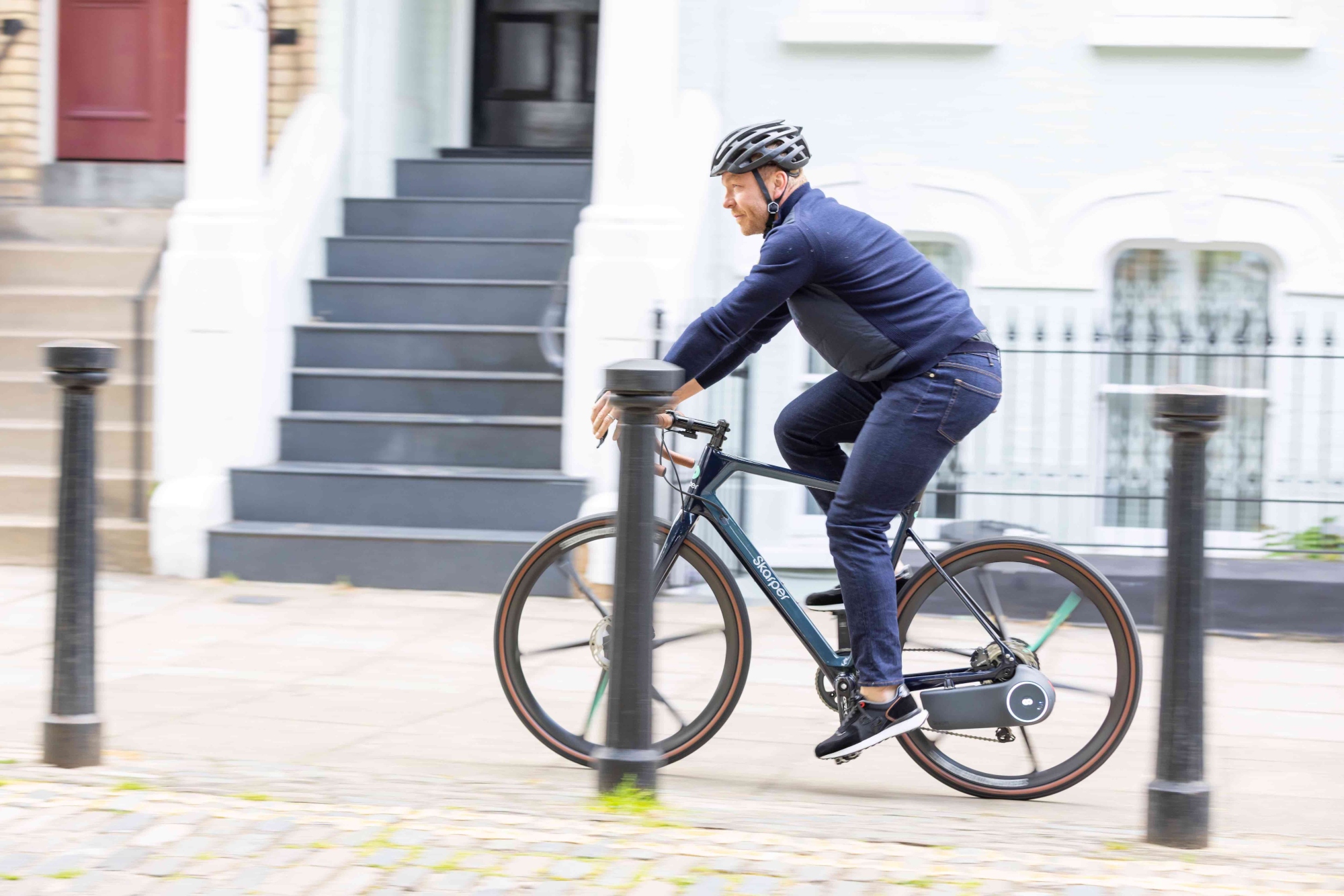
"Securing a second investment round in less than 12 months is testament to how innovative and industry-changing Skarper is,” the brand's CEO and co-founder Ean Brown said. “We have received hundreds of distribution requests from around the world and have a large waiting list of customers. The interest from industry leaders, including bike component manufacturers and household brands, has exceeded our expectations. Our revolutionary technology lowers barriers to owning high quality eBikes and reduces waste.
“Ultimately, it is Skarper’s ambition to see a DiskDrive disc brake fitted as standard from the factory on millions of bicycles around the world. With such a positive industry response, momentum accelerating, significant investment and confidence in the business high, we look forward to sharing more exciting news as this year progresses.”
Although a retail price has yet to be confirmed, the Skarper website states the technology will start at £1,000 and that it expects to start taking pre-orders at some point this year.
